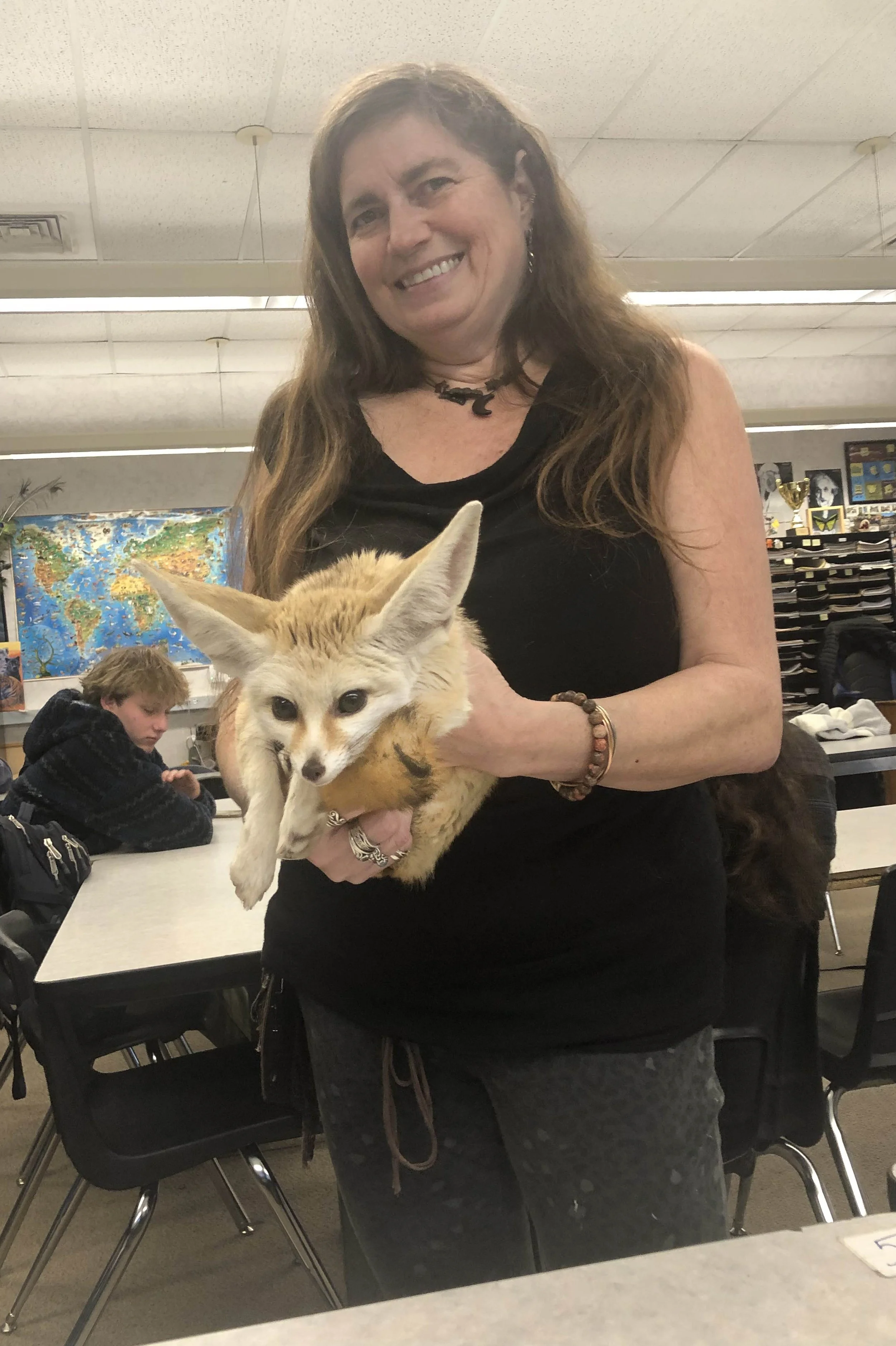Carrillo’s safari spectacle
Animal display at Maria Carrillo (Chase Soylu Chee/The Puma Prensa)
Written By: Chase Soylu Chee, staff writer
Safaris are wildlands that contain non-domesticated animals and allow them to stick with their ancestral roots. You might not be able to see the same luscious land that safaris contain at Maria Carrillo High School, but last week you could see the same exotic animals. Once a year, Classroom Safari brings various wild animals to campus for students to see.
This spectacle is held in science teacher Gale Ligotti’s elective course, Zoology. The class provides a complex insight into the study of animals through creative and entertaining activities. Students will learn about the development of animals through documentaries, hands-on labs, and art.
One of this course’s main selling points is the annual Classroom Safari visit. This educational outreach organization, which, as its Instagram account states, “brings the wild to you,” offers visits to various exotic animals and seeks to educate students about animal diversity worldwide.
Classroom Safari’s visit on Thursday, January 23rd sent waves within MCHS’s faculty, enticing them to join Ligotti’s Zoology students in learning about these many amazing exotic animals.
This recent visit started with an introduction from Classroom Safari director Bonnie Cromwell and her aide Jolyn Andrews. Then, the scuffling of MCHS faculty came when the snakes were introduced.
The class was educated about snakes while presented with the Arizona Mountain Kingsnake and Ball Python. This snake firmly grasped the presenter's hands while observing the class. The audience learned that having “king” in a snake’s name meant they ate other snakes.
After observing the spiraling snakes, a young American Alligator named Anakin Mudwalker was presented. Flailing their tails and arms taught the class about alligators' life cycles, unique features, and biological processes. Students were fortunate to feel the scaly animal’s tail before another visitor came out.
Moving from the scaly to the spiky part of the spectrum, a tiny Hedgehog named Poke Ahontas sniffed around the class. The class was educated on the animal’s scaly features and its animal ancestors, shrews, but overall, they were in awe of the cuteness of the small critter.
The class was introduced to a small Fennec Fox by removing the protective gloves. Once again, struck by the fox's cuteness, the class took many photos and videos. An interesting fact from Cromwell’s presentation is that this canine acts like a dog, hunts like a cat, and looks like a fox.
Next, the spotted Serval Savannah cat was introduced to the class. Showcasing its large stature and extraordinary jump, the class enjoyed the cat's curious nature and cute actions. The serval is the second fastest cat and can leap up to ten feet in the air to catch prey.
A little shy, the Southern three-banded Armadillo curled up in Cromwell’s hand while being used to demonstrate the complex nature of its shell and protective mechanism of curling up in a ball. The armadillo was placed on the ground to open up, but it was scared by the many pairs of eyes watching it.
Did you know that many mistake sloths for being blind? Taking it a little slow, a two-toed sloth held onto Andrews for support while making rounds around the class. With the frantic waves and grasping from nearby desks, the class learned about the sloth's perspectives on the world. After being fed some raw cranberries, the sloth expressed sadness leaving the elated audience.
The next most curious animal was a Ferret, who enjoyed studying the desks, audience, and room. Constantly trying to jump out of Andrews’ hands, the ferret was eager to meet its new classmates. Cromwell presented a fun fact about ferrets: They have a smelly musk, which the students confirmed after being around them.
Sadly, by the time the ferret explored nearly the whole class, lunch had started, and Classroom Safari’s visit was ending.
Cromwell reiterated an important lesson from this visit: all of these animals are illegal to own, and one should always be cautious when dealing with wild and non-domesticated animals.
Ultimately, Classroom Safari proved its worth to the audience of students and faculty. If you missed it, do not worry: Classroom Safari happens yearly in Ligotti’s Zoology course. Now is a perfect time to speak to your counselor and request to take the course this upcoming school year. The exotic MCHS safari awaits you.




